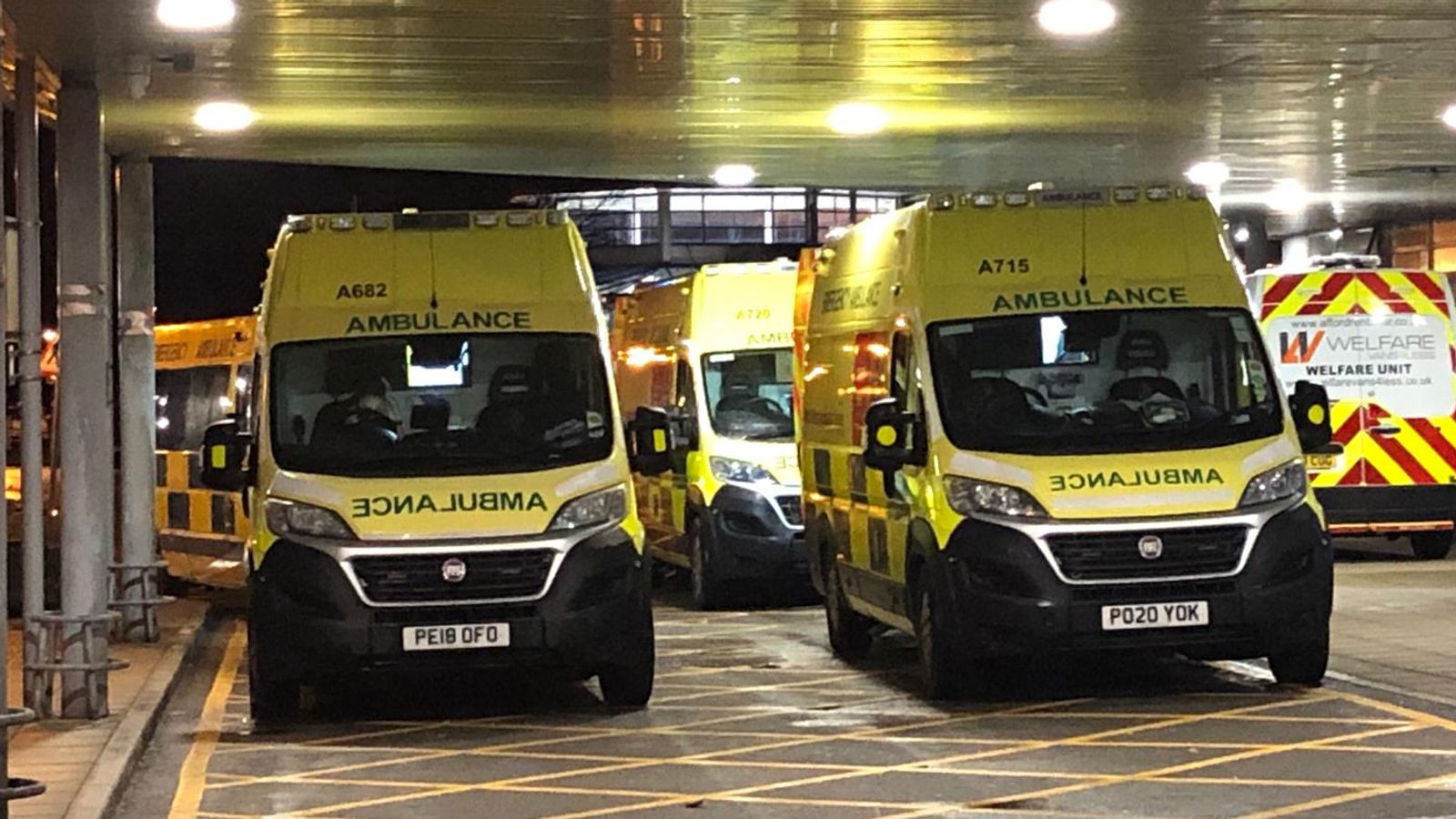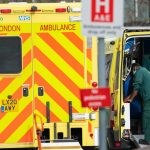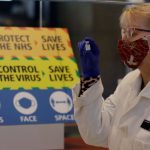Getting her COVID vaccine is the first bit of good news Marlene Savage has recently had.
She is very frail.
As the injection is administered into her bony arm, Marlene gives out a short, sharp cry. It is more a reaction to what she thinks will happen than what has actually happened.
Because after the nurse has finished Marlene asks: “Is that it? Is it over?” And then chuckles.
Marlene has been feeling poorly and has spent the last three weeks in hospital. She is recently bereaved, losing her husband after 55 years of marriage. He died of pneumonia.
I ask her if she is getting better. She replies: “I will in time. You’ve got to. Life goes on.”
The same is true for Warrington Hospital where Marlene is being treated. Life must go on.
This hospital like the rest of the health service must square up to the huge challenges ahead.
The NHS waiting list is growing and delays in cancer treatment, in particular, could have catastrophic consequences for years to come.
Jane Gilsenan is one of the fortunate ones. She has waited 12 weeks for her cancer operation.
I spoke to Jane as she lay in bed, sore and uncomfortable, after undergoing recent surgery.
“I had a lump in my kidney, a cancerous lump in my kidney. They had to remove it,” she tells me.
“It was quite quick because of the COVID,” Jane says, adding she did not have to wait as long as she originally feared.
“Better than dying,” she says with a shrug. “If they hadn’t done it, it would have festered through the body.”
The NHS waiting list was already a pre-pandemic concern. As the country braced itself for the arrival of coronavirus in early 2020, the decision was taken to suspend all non-urgent operations.
On reflection this is now seen as an extreme measure, necessary in the face of an unprecedented global health emergency and one that will have profound consequences.
During the second wave there was no such central directive to health trusts. But ultimately, the second wave proved to be deadlier than the first and trusts were forced to make local decisions to postpone non-urgent care.
The impact of these decisions is now being felt.
Dr Andrew Langdon, associate medical director at Warrington Hospital, says there is a “significant’ amount of work ahead that will require a change in the way hospitals operate in the future.
He said: “We will have to change the way we work: longer hours, utilise our theatres, until the waiting list gets smaller and smaller. It’s going to take a considerable time to get it to an acceptable level.”
I ask Dr Langdon if this was a legacy of COVID-19.
“100%. It’s had a huge impact even stopping for just a short time,” he replied.
The health crisis has pushed hospitals like Warrington to the limit. But it has learned how to reconfigure and repurpose spaces like operating theatres.
Mark Rigby, the hospital’s head of theatre services, says without this flexibility they could not have coped.
“It was crucial,” he says. “If we hadn’t had this area when our ICU was full… it was a better area to be with the right staff, right skills.
“I will always look over my shoulder for the next five years until I retire. I will have that document ready for the next phase. Viruses are here to stay.”
The pandemic has shown Warrington Hospital where it needs to redesign and rebuild to enable it to work more efficiently.
Work has started to build an enhanced care unit next to the ICU to bring medically connected teams physically nearer to each other. This building work is ongoing even as the ICU continues to treat critically ill COVID patients.
Please use Chrome browser for a more accessible video player
This illustrates perfectly the difficulty of the task facing hospitals as they attempt to fully restore services. COVID-19 has not gone away.
Hospitals must function with social distancing and by having designated COVID and non-COVID treatment areas. Maintaining patient safety is crucial.
Jane is preparing to go home. Her stay in hospital has been difficult because she has been separated from her family. This enforced separation is another cruelty inflicted on all hospital patients.
She said: “God yeah, it’s absolutely horrendous not having your loved one, being able to hold his hand.”
Choking back tears, she says: “It’s terrible.”
Jane’s experience will help to shape future crisis responses and shape the way Warrington Hospital and the National Health Service re-emerge in a post pandemic world.






















